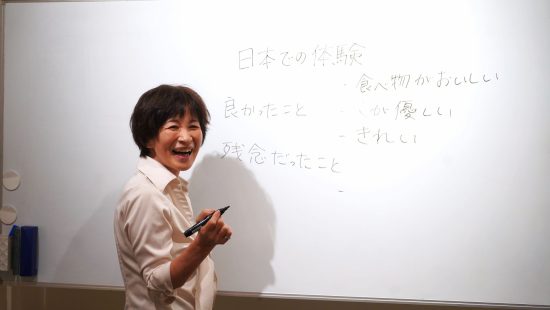|
Studying for a Master’s in Japan

The Japanese government is encouraging higher education in its nation through the “Top Global University Project” in consideration of Japan’s globalization aspirations. This project is for you if you’ve been considering attending a university in the land of the rising sun! This initiative creates relationships with foreign colleges in an effort to increase internationalization in the nation. This makes Japan’s top academic institutions more approachable to international talent.
Postgraduate students who want to continue their academic career abroad are at the ideal moment. Japan has several academic specialties with only qualified teachers. The finest thing is getting to work hard for your master’s degree in a highly developed nation that maintains its traditions, culture, and legacy! What to anticipate from your postgraduate study in Japan is shown in the following:
Studying for a Master’s in Japan
For international postgraduates, there are three different categories of Japanese universities: (1) Public universities are institutions of higher learning that are organized and administered by local businesses and organizations to operate as intellectual and cultural hubs for the community at large. (2) In order to equalize the distribution of higher education throughout the area, the Japanese government built national universities in each of the country’s 47 prefectures or districts. (3) Private universities, which autonomous companies operate using their own goals and distinctive methods for doing research and delivering higher education.
In general, all Japanese universities are well-known around the world for their cutting-edge research and high-tech programs. Whichever option you choose, you can be confident that you’ll have the greatest possible academic experience. Continue reading to learn more about Japan’s world-class education system and how to get started on your master’s degree search there!
Academic Prowess
Japanese people place a high priority on education, and their constitution safeguards academic independence. With such a high premium placed on education in contemporary Japanese culture, the archipelago is home to at least 700 institutions, 75% of which are private. Of them, seven are among the top 50 universities in Asia, while two are among the top 100 worldwide. Rightfully so, given that Japan exclusively uses the greatest materials in its research and education programs!
The start of the academic year in Japan is usually in April. In October, when the second semester starts, certain institutions also offer master’s degree programs. Japan grants master’s degrees in two years. You should complete 30 credits over the duration of your degree by taking several core, research, and optional courses, with each course typically worth two credits. You’ll work hard for these credits over the course of three semesters, working toward the final semester when you’ll perform your master’s research project and deliver your master’s dissertation.
Offers of Scholarships
The Ministry of Education, Culture, Sports, Science and Technology (MEXT) of the Japanese Government has a list of the best institutions and fully funded programs in the nation if you’re considering earning your master’s degree in Japan on a scholarship. International postgraduate students have access to a number of scholarships, but the MEXT program gives you a higher chance of enrolling in the top national institutions.
Depending on the degree you’re pursuing, the MEXT provides scholarships that pay for all of your tuition. Be careful to get your JLPT certificate since they also often are only available at institutions that provide their courses in Japanese. While there are several institutions that provide English-language instruction, the MEXT program expressly awards scholarships to foreign students for Japanese national universities. whether you’re interested in learning whether you qualify for a MEXT scholarship, contact the closest Japanese embassy!
Level of Living
If you’ve been considering attending a university in Japan, you must have already done your study on the nation. Maybe you’ve read stories that tout the great standard of living in the country of the rising sun. We can only vouch for their accuracy. Japan is one of the safest and friendliest nations in the world, and many international students find its language and culture appealing.
When studying in Japan, postgraduate students pursuing a master’s degree additionally have particular benefits and access to resources. After you graduate, you might start doing research or perhaps working in a related field! In reality, in 2012, after graduating, 8,000 foreigners with master’s degrees found employment. If you succeed in your studies and get a job offer, you may even request to alter your residence status from student to worker!
People admire Japan for a variety of reasons. There is no disputing the nation’s influence on the globe. Anime and manga are often how young people first encountered this culture. It’s hardly surprising that anybody has ever dreamed of living in Japan given its effect on the world via media alone.
Application Method
Foreign applicants’ master’s degree application procedures at Japanese universities are often identical to those in their home countries. The prerequisite with the highest bar is a bachelor’s degree. The institution of your choice can additionally want you to submit your GRE scores, or even to take an admission test for the subject area you want to study. These requirements for a postgraduate application are rather typical!
You must provide a certificate of English language competency unless your bachelor’s degree is from a nation where English is the official language. IELTS, TOEFL, and C1 Advanced are accepted as official credentials by almost all Japanese institutions. Similar to this, you must provide your JLPT certificate if you want to enroll in a course that institutions only offer in Japanese. Universities demand competency in N2 or above. This is only relevant since a course for native Japanese speakers requires near-native fluency!
You may download the application forms for individual universities as well. This must be sent together with other application materials, such as an academic essay or personal statement, transcripts of your undergraduate work, a bachelor’s degree, and often two letters of reference. If you’ve located a school that offers the course you want, visit their official website for further information on their particular application procedure.
Conclusion
Japan offers a wide range of alternatives for postgraduates pursuing higher education, including master’s degrees in management, environmental engineering, information sciences, economics, and materials science. Foreign students have greater access than ever to Japan’s reputation as one of the safest and friendliest nations in the world as a result of Japan’s ongoing expansion of its worldwide links. Look into the top Japanese colleges right now to see whether they offer the master’s degree you desire if you want to ensure your future with a superior education.






